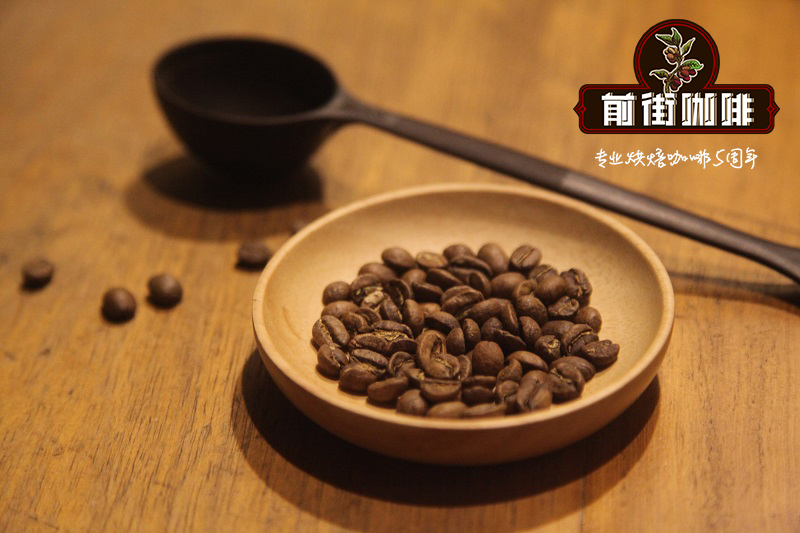Suggestion of coffee hand brewing parameters in Aguirate Manor, Costa Rica _ Aguirette Family Coffee Story

Professional coffee knowledge exchange more coffee bean information please follow the coffee workshop (Wechat official account cafe_style)
Three Aguilet brothers in Costa Rica /
Costa Rica faces the Pacific Ocean on the west and the Caribbean Sea on the east. Costa Rica means "fertile coast" in Spanish. Because Costa Rica is located in a volcanic area like Sumatra in hard Nicaea, the soil is very fertile and the mountains are well drained.
Costa Rica has a population of 1x3 devoted to the cultivation of newly developed villa sarchi beans. The Aguilet brothers are usually responsible for the operation of the family's six farms and micro-processing plants. The fermentation treatment of red wine is to put the coffee fruit in a sealed metal container for anaerobic fermentation to control the PH value in the fermentation process, the type and number of bacteria involved in the fermentation and other factors to form a unique flavor.
Not waiting to see a famous manor.
Costa Rica has a history of two hundred years of coffee cultivation, and the development of the coffee industry has driven the economic development of Costa Rica.
The official account replied the keyword "Costa Rica" in the background to get more Costa Rican coffee stories.
Don Edgar Aguilera, the founder of the Aguilet family, is one of the first coffee growers in the Western Valley, one of the three major coffee producing regions in Costa Rica.
Seventy years ago, he bought some land in the western valley of Costa Rica and began to grow coffee. Nearby landowners are not optimistic about this, they think that coffee trees can not grow in the western valley.
Despite the contempt and criticism of others, Aguilet carefully planted coffee trees on her land and expanded her coffee territory in the western valleys.
Today, more than 70 years later, the western valley is full of coffee trees, and this area has become one of the three major producing areas of Costa Rica alongside Tarazu and the central valley. Aguilet has become a person who dares to eat crabs.
The second generation of the Aguirette family has 12 brothers and sisters who inherit the coffee estate from their father, bringing the family's coffee business to a higher level.
At first, the Aguilet family grew coffee and sold full and ripe coffee fruits. But the price of coffee fruit is very low, and the income is not enough to meet their daily needs.
The turnaround occurred in 2007.
In 2007, the Aguirette family's coffee beans won fourth place in the Costa Rican raw bean competition (Cup of Excellent, referred to as CoE). The Aguilet family earned a lot of money by selling the award-winning coffee beans.
Using this income, they set up a micro-processing plant in the western valley and began to deal with coffee beans from the family estate on a small scale. The price of raw coffee beans is much higher than that of coffee fruits, so they also earn more income.
In addition to having more wealth, another benefit of setting up micro-processing plants is that the Aguilet family has established ties with coffee roasters who buy their coffee beans.
Before they owned the coffee processing plant, the Aguilet family sold coffee fruit to a local cooperative.
The coffee fruit sold is like a stone thrown into the sea. They don't get any feedback and don't know whether their coffee is good or not.
"No one visited before," said Ersamo, a member of the Aguilet family and general manager of the microprocessing plant. "now we get feedback, and we hear people who love coffee tell us how to make it better."
The Aguilet family is proud that they handle all the affairs of the six coffee farms and a micro-processing plant they now own, without outside interference, unless it is during the extremely busy coffee harvest season. The Aguilet family will hire some short-term pickers to help harvest the coffee fruit.
And their next generation, the third generation of coffee producers in the Western Valley, gradually joined the family business and continued the coffee legend of the Western Valley.
This Costa Rican coffee bean has ripe fruit and creamy taste, red wine fermented aroma and coffee bean own apricot, melon, black sugar and other flavors, a long finish.
/ flavor characteristics /
Ripe cherry, red wine, jackfruit, plum, melon
/ try it /
Production: make a cold extract coffee with beans fermented in the sun with Costa Rica and red wine. Add 260g of coffee powder to 20g of coffee powder, put it in a sealed container and refrigerate for six hours. After six hours, take the coffee liquid out of the refrigerator and filter it out with filter paper.
Comments: after six hours of soaking and low temperature extraction, the flavor we want will be brought out, the bitterness will be reduced, and the taste of red wine will become obvious, as well as the taste of peach, jackfruit and other tropical fruits, which is very suitable for drinking in summer.
Analysis of Costa Rican coffee brewing
Hand punch reference
Use key home filter cup, 16 grams powder 32 grams of water steaming for 30 seconds, 89-90 degrees water temperature extraction, 1:15, fine grinding small Fuji 3.5 second water injection to 110ml cut off, wait for water drop and then slowly water injection, uniform speed, the water level should not be too high, again water injection to 233ml stop, extraction time 2:15 seconds ~ rich sweet and sour feeling, we can fine-tune according to their own taste.
END
Important Notice :
前街咖啡 FrontStreet Coffee has moved to new addredd:
FrontStreet Coffee Address: 315,Donghua East Road,GuangZhou
Tel:020 38364473
- Prev

Cerro Villa, Costa Rica, black honey coffee hand-made reference _ which brand of Costa Rican black honey is good
For more information on coffee beans, please follow the Coffee Workshop (Wechat official account cafe_style) Costa Rica is bordered by the Caribbean Sea to the east and the Pacific Ocean to the west, as the country's name means in Spanish: fertile shores. Located in the south of SanJos, the capital of Tarasu, Costa Rica is a valued coffee grower in the country.
- Next

Organic Certification | Karanawi production area in Bolivia | Mama Ni family small farmers cooperate to wash iron cards,
Professional coffee knowledge exchange more coffee bean information please follow the coffee workshop (Wechat official account cafe_style) organic certification | Karanawi production area in Bolivia | Mama Ni family small farmers cooperate to wash iron card, Kaddura flavor? This coffee bean comes from Bolivai Karanawi, a small village in San Ignacioli, where four members of the mother's family are neighbors.
Related
- Detailed explanation of Jadeite planting Land in Panamanian Jadeite Manor introduction to the grading system of Jadeite competitive bidding, Red bid, Green bid and Rose Summer
- Story of Coffee planting in Brenka region of Costa Rica Stonehenge Manor anaerobic heavy honey treatment of flavor mouth
- What's on the barrel of Blue Mountain Coffee beans?
- Can American coffee also pull flowers? How to use hot American style to pull out a good-looking pattern?
- Can you make a cold extract with coffee beans? What is the right proportion for cold-extracted coffee formula?
- Indonesian PWN Gold Mandrine Coffee Origin Features Flavor How to Chong? Mandolin coffee is American.
- A brief introduction to the flavor characteristics of Brazilian yellow bourbon coffee beans
- What is the effect of different water quality on the flavor of cold-extracted coffee? What kind of water is best for brewing coffee?
- Why do you think of Rose Summer whenever you mention Panamanian coffee?
- Introduction to the characteristics of authentic blue mountain coffee bean producing areas? What is the CIB Coffee Authority in Jamaica?

